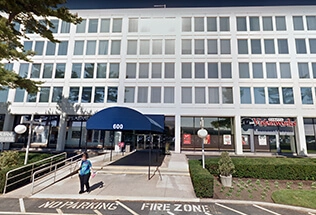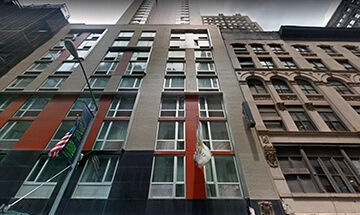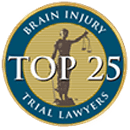When a witness takes the stand in court, they need to know what to expect. This is because their testimony can significantly impact the outcome of a case, and being prepared helps ensure they present their information clearly and confidently. Thankfully, the process is fairly streamlined and straightforward.
To begin, the witness will almost always have to answer questions asked by the legal team that called them up. Then, they’ll often have to answer more questions from the opposing legal team. Finally, a witness may occasionally have to answer additional questions on redirect.
The experienced New York City personal injury attorneys at Schwartzapfel Lawyers can help prepare you or a loved one for any possibility when you’re called into court. Call us at 516-342-2200 or visit us online for a free consultation.
What Is The Procedure For Asking Questions In Court?
Court cases are resolved by skilled lawyers presenting evidence and asking relevant witnesses questions about that evidence. In law, there is a strict procedure for how and when people can be questioned and who can question them.
What Is an Examination?
A witness is called to the stand and placed under oath, which means that they swear to tell the truth and understand that there can be legal consequences if they intentionally mislead the court or lie on the stand. This punishment doesn’t apply in cases where someone genuinely forgot an important piece of information or was misinformed prior to giving their testimony.
The side that calls the witness to the stand is the first to ask questions. The witness is almost always briefed before they have to speak in court. They’ll have a conversation with the legal team that intends to call them as witnesses, and they may run through some practice questions together. Sometimes, a witness can refer back to their witness statement to remind them of the topic they’ll be discussing before they answer questions.
The witness is required to answer all questions honestly. The other side may object to certain lines of questioning, and the judge, in their capacity as “trier of law,” will determine whether the questions are allowed. In this way, the judge has the final say on what information is allowed to be entered into the court record.
What Is Cross-Examination?
After the side that called the witness has concluded its examination, the opposing side has the option to cross-examine the witness. There may be cases where the opposition doesn’t have questions. In those cases, they rest, and the witness is dismissed.
If the opposition has questions, they’re allowed to ask the witness about the answers they gave during their first examination. The goal of the opposition is always to discredit the witness. The opposition may be an insurance company trying to avoid a payout or an employer trying to avoid an expensive liability. They’ll work hard during cross-examination to deny responsibility.
What Is A Redirect In Court?
After cross-examination, the party who called the witness first has two options: They can rest and dismiss the witness, or they can ask for a redirect.
A redirect in court occurs when the party who called a witness asks for an opportunity to clarify or verify statements made during a cross-examination. In some cases, the opposing party asks questions that are phrased to make the witness seem less credible or to get the witness to change the way they phrase their answers to make them seem more valuable to the opposing party’s argument.
The clarifying questions in a redirect can help to mend any damage from the opposition’s attempt to muddy the waters. Asking for greater specificity or reiterating facts that a witness already provided can prevent witness testimony from skewing too far off course.
The experienced New York construction accident attorneys of Schwartzapfel Lawyers can help you fully prepare to take the stand. Call us now at 516-342-2200 for your free consultation and so much more. Alternatively, please continue reading.
Why Is A Redirect In Court Important?
There’s a theory in psychology that the statement someone hears last is the one they’ll remember the most. If the last thing a judge or a jury hears is the opposition attempting to discredit you or modify the narrative, it may stay longer in their minds than statements from your first examination.
A redirect circles back to the original statement and confirms what you said. A redirect can refresh the memories of everyone involved and possibly eliminate the notion that a witness is biased, not credible, or untruthful. As well, a redirect can provide an opportunity to clarify any misunderstandings or misinterpretations that may have arisen during cross-examination.
How Common Are Redirects?
A skilled legal team always has the option to use a redirect if the opposition chooses to cross-examine their witness. Although redirects aren’t always used, they’re always allowed.
An experienced attorney knows when a redirect is the right choice for their strategy of presenting evidence and witness testimony. Great attorneys never waste the opportunity to use an effective redirect when the situation presents itself. This is because a well-timed redirect can reinforce key points, address any damaging implications raised during cross-examination, and, in turn, solidify that the witness’s testimony remains strong and credible.
What Can A Seasoned Lawyer Ask During A Redirect?
Redirects are usually limited to the information that was discussed during cross-examination. Your legal team typically isn’t allowed to introduce new information or ask questions about things that weren’t previously discussed. There may be exceptions in cases where the opposing legal team introduces a new line of questioning.
Do Qualified Lawyers Plan For Redirects?
Most experienced lawyers plan for redirects and have a general idea of the questions they’d like to ask. Your skilled lawyer might take notes during your cross-examination and use those notes as questions for a redirect when the opposition rests.
However, some redirects may be completely spontaneous, especially if the opposition throws a serious curveball.
Your seasoned lawyer may not need to ask for a redirect if they’re able to successfully make objections to the opposition’s line of questioning before you answer any questions that may be designed to damage your credibility or create the appearance of a contradiction.
What Should A Witness Do During A Redirect?
During a redirect, a witness shouldn’t change their answers unless their recollection has honestly changed or they were presented with new information that changes the context of what they know.
A cross-examination can sometimes be used as an opportunity for the opposition to confuse the witness or make them question their own recollection of events. It’s more important to stand strong during a cross-examination than it is to be concerned with a redirect. If you’re able to effectively manage the often confusing and overwhelming methods the opposition may use in cross-examination, there may be no need for a redirect.
The experienced New York construction accident attorneys of Schwartzapfel Lawyers will be able to help you effectively prepare for your cross-examination. Call us now at 516-342-2200 for peace of mind and practical legal advice, free of charge.
Schwartzapfel Lawyers: Fighting For You!
The goal in most personal injury or workers’ compensation claims is to avoid court. Court can be stressful and expensive for everyone involved, and skilled lawyers are often able to negotiate and win for their clients without ever stepping foot in a courtroom. Even still, there may be situations where court is mandatory.
The award-winning New York construction accident attorneys of Schwartzapfel Lawyers are here to walk you through every step of the process. We’ll make sure you’re prepared for every statement you have to make in order to tell your story in the best light possible. Call us now at 516-342-2200 and allow Schwartzapfel Lawyers the honor and privilege of fighting — and winning! —for you.
DISCLAIMER: Nothing on this page should be considered legal advice. You should seek the appropriate counsel your situation requires. For more information, call 516-342-2200 now!
Sources:
Schwartzapfel Lawyers, P.C. | Fighting For You
6.05. Oath or Affirmation for a Witness to Testify | New York State Unified Court System
6.10. Scope & Manner of Examination of Witnesses | New York State Unified Court System
Effect of Serial Position upon Memorization | The American Journal of Psychology
Examination, Cross-Examination, and Redirect Examination | UNC School of Government
















